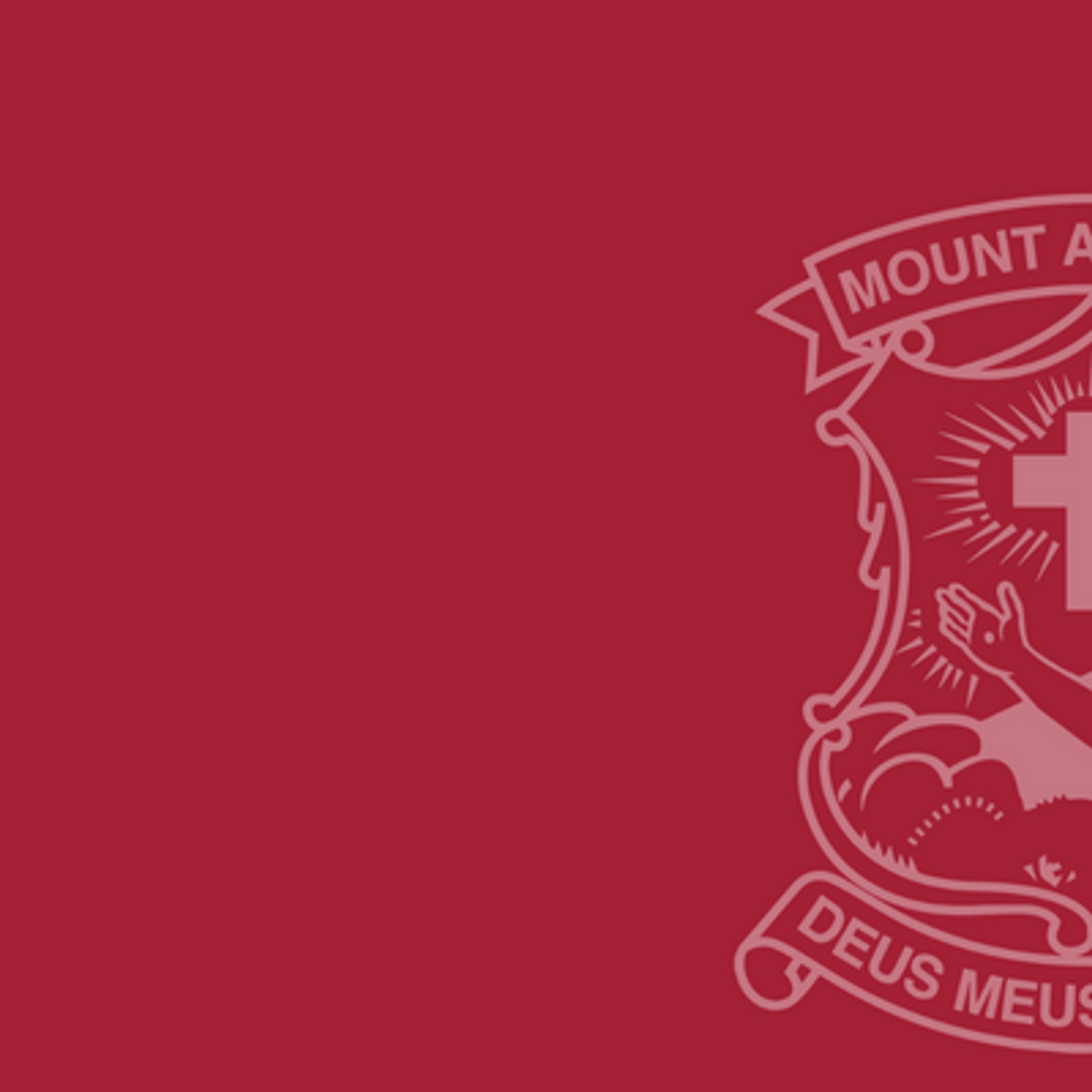Deputy Principal
Identity & Religious Life of the College - Richard Rogusz

Deputy Principal
Identity & Religious Life of the College - Richard Rogusz


Expanding our Circle of Relationship in our Year of Service
In the first newsletter of the year I wrote about the Franciscan value of Service, our guiding value for 2024. Our definition of Service identifies service as a manifestation of our Franciscanism:
We believe that service is the demonstrated expression of who we are as Franciscan people.
Service is characterised by our compassion for another but it also emerges from our gifts and talents. We give to others from who we are.
We use our gifts and talents to serve others with compassion.
Service is a commitment to justice that is both local and global:
Through our action for justice locally and globally…
Service is also transformative, not only of our world but also of ourselves:
We seek to transform the world for good.
Service goes beyond merely doing for one another. The Franciscan Action Network – an organisation based in the United States of America that seeks to influence public policy – observes:
“Members of the Franciscan family today are called to be with and identify with the poor and vulnerable and with all who face discrimination of one form or another. We are called to be in solidarity with them in their struggle to have their God-given rights honoured by others. We are called to develop a lifestyle that brings us close to the poor and makes us sensitive to those who are most vulnerable.”
It is an ever-widening circle of relationship that takes us beyond what is comfortable and familiar.


In defining service, justice is clearly the goal. The poor and most vulnerable cannot continue to be poor and vulnerable.
In the context of Catholic Social Teaching, if service is going to lead to justice, it requires a spirit of solidarity. When the Church speaks of solidarity it means that:
“We are our brothers’ and sisters’ keepers, wherever they live. We are one human family, whatever our national, racial, ethnic, economic, and ideological differences. Solidarity means that “loving our neighbour” has global dimensions in an interdependent world.” (Twin Cities,
It is an ever widening circle of relationship that takes us beyond what is comfortable and familiar.
One way that we can grow our solidarity with others is to know their stories. This requires us to go beyond ourselves - our own self-interest and obsession with trivial things – to seek to understand the experiences of others wherever in the world they might live.
Each year during Lent, as part of Project Compassion, we explore global stories of those not like us. Such stories take us beyond ourselves and challenge us to consider the injustice experienced by so many in our world. Such injustice is often borne of social and global structures that are intended to keep most people poor. This is injustice by design, not by chance.
The money raised through Caritas’ Project Compassion Appeal is used to fund long term development programs in partnership with some of the world’s most vulnerable communities for whom poverty and injustice is a daily reality. During Lent, each student is asked to consider what they can give up and to donate the money they save to people in need. Together, we can help vulnerable communities face their challenges today and build a better tomorrow for all future generations.
All donations can be made via the Mount Alvernia College Project Compassion online portal: https://schools.projectcompassion.org.au/o/mt-alvernia-college. Search or scroll down to find your child’s House Team and donate to that Team. This link will also be shared with students via the Homeroom Unit Page on MyMtA. For more information about Project Compassion, visit the Caritas website: https://www.caritas.org.au/project-compassion/.
World Day of Prayer: Palestine
Today, Friday 1st March, is the World Day of Prayer. It is a global ecumenical movement led by Christian women who welcome all people to join in prayer and action for peace and justice.
Each year, a community from a specific country is chosen to prepare prayer resources and to highlight situations of injustice that they experience. This year’s host country is Palestine.
Palestine was chosen as this year’s host country several years ago, well before the outbreak of the current conflict in Gaza. Now in its 146th day (almost four months) the situation in Gaza is horrific. As of yesterday:
On the 26th of January this year, the International Court of Justice ordered Israel to take concrete steps to prevent acts of genocide, stop the killing of Palestinians and provide humanitarian aid. So far, the Israeli Government has failed to comply with this order.
In his New Year’s address to the ambassadors of the 184 countries that have diplomatic relations with the Holy See, Pope Francis called on the international community to step up its efforts to defend humanitarian law. He said:
“We need to realize more clearly that civilian victims are not ‘collateral damage’ but men and women, with names and surnames, who lose their lives. They are children who are orphaned and deprived of their future. They are individuals who suffer from hunger, thirst and cold, or are mutilated as an effect of the power of modern explosives. Were we to be able to look each of them in the eye, call them by name, and learn something of their personal history, we would see war for what it is: nothing other than an immense tragedy, a ‘useless slaughter,’ one that offends the dignity of every person on this earth.”
This World Day of Prayer, let us raise our voices for the innocent men, women and children of Palestine. In praying for peace, we call for an immediate ceasefire in Gaza, the release of Israeli hostages, and the provision of humanitarian aid to the Palestinian people. Let us pray:
Lord God of peace,
hear our prayer, come to our aid.
Grant us peace, teach us peace;
guide our steps in the way of peace.
Open our eyes and our hearts,
and give us the courage to say: "Never again war!"
Renew our hearts and minds,
so that our way of life
will always be that of:
Shalom, Peace, Salaam!
Amen.
International Women’s Day: Invest in Women
Next Friday 8th March is International Women’s Day. It is an annual day of advocacy for the advancement of women's rights and participation socially, politically and economically.
This year’s theme, “Invest in Women: Accelerate Progress,” highlights:
It calls us to:
Invest in women: Gender equality remains the greatest human rights challenge. Investing in women is a human rights imperative and cornerstone for building inclusive societies. Progress for women benefits us all.
End poverty: Since 2020, the COVID pandemic, geopolitical conflicts, climate disasters, and economic turmoil, have pushed an extra 75 million people into severe poverty. Immediate action is crucial to prevent over 342 million women and girls from living in poverty by 2030.
Implement gender-responsive financing: Recent estimates suggest that by 2025, due to conflicts and rising fuel and food prices, 75 per cent of countries will curb public spending. Austerity measures negatively impact essential public services and social protections for women.
Shift to a green economy and care society: The current economic system exacerbates poverty, inequality, and environmental degradation, disproportionately affecting women. Advocates for alternative economic models that amplify women’s voices, propose a shift towards a green economy and care society.
Support feminist change-makers: Feminist organisations are leading efforts to tackle women’s poverty and inequality; however, they only receive 0.13 per cent of total official development assistance.
The College will celebrate this day by completing activities during homeroom time next week, wearing purple ribbons that will be distributed by the Z Club on Friday morning, and by hosting our annual International Women’s Day brunch on Saturday 9th March.
We hope each family will also take some time next weekend to celebrate the significant women in their lives.
(Adapted from International Women’s Day 2024: ‘Invest in women: Accelerate progress,’